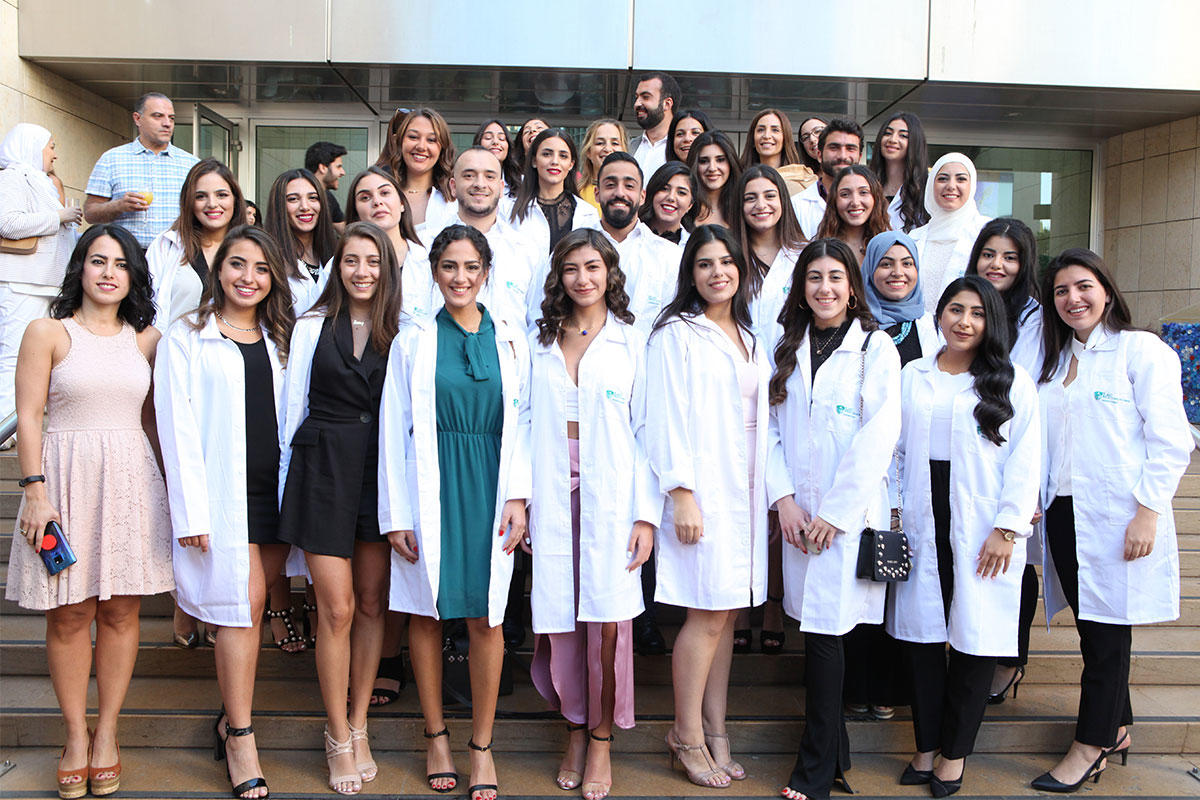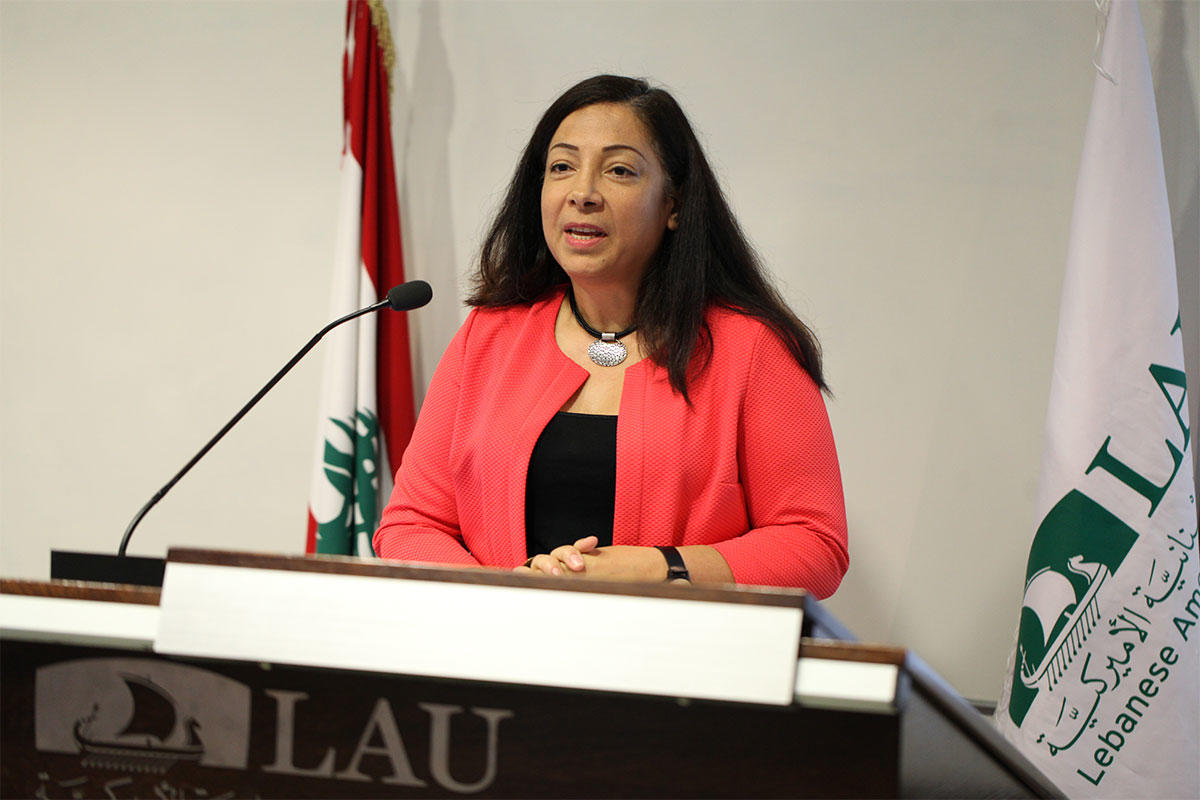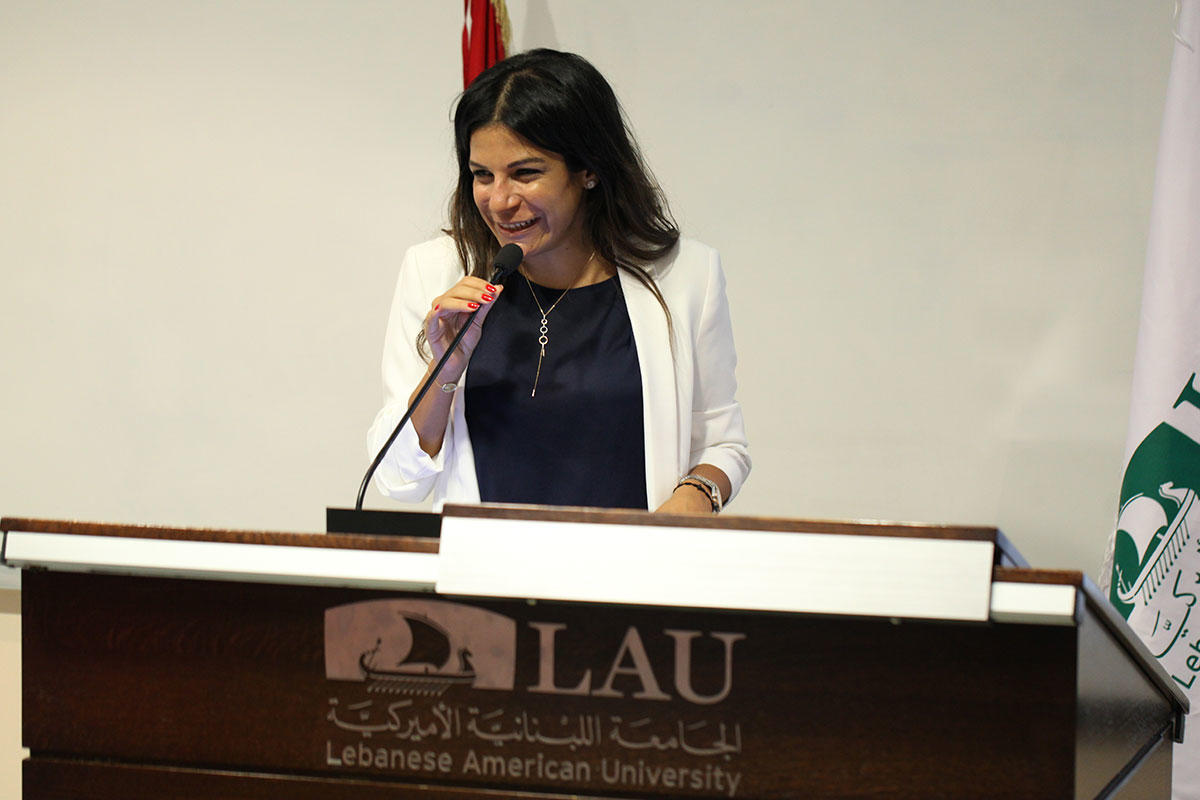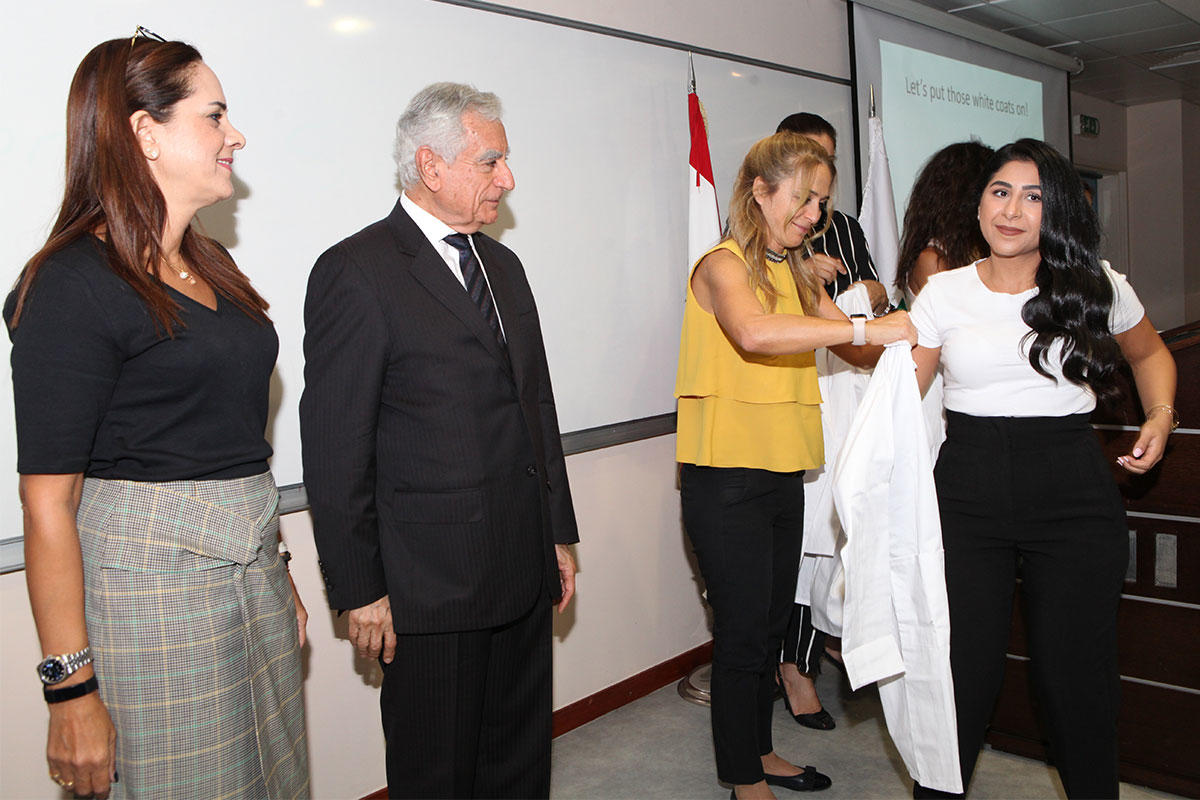Nutrition Graduates Don White Coats
Students vow to honor their role as professional dietitians.
The Nutrition and Dietetics Program cloaked 28 nutrition graduates in a white coat ceremony that ushered them into the professional world of dietetics.
All students have already started their dietetic internships at LAU Medical Center-Rizk Hospital and other hospitals. Nutrition Program Coordinator Nadine Zeeni said that LAU has “agreements with around 20 hospitals across Lebanon and ensures placements for all eligible students.”
The main message from the guest speakers was clear: commitment to the mission for healthier lifestyles as the world faces increasing rates of obesity and food insecurity.
LAU President Joseph G. Jabbra said that 33.8 percent of the adult population and 17 percent of children and adolescents in the United States suffer from obesity. In light of such alarming realities, Dr. Jabbra advised students to reflect on the meaning of the white coat as a symbol of commitment “to serve humanity, to contribute to your discipline, and to consider your top priority your patient or your client.”
“We live in a very complex globalized world where the only constant is exponential change and therefore you have to commit to continue to be life-long learners,” he added.
For her part Dean of the School of Arts and Sciences Cathia Jenainati underlined the challenges facing society when it comes to “food security, water scarcity and the consequences of the lack of education about healthy lifestyles.”
“As parents, grandparents and responsible citizens we certainly have a lot to be concerned about,” she said. “Tonight’s event brings us hope. As we look around this room we should feel reassured that a group of well-trained, highly qualified and socially responsible individuals will soon play their part in addressing some of our pressing concerns.”
Dr. Jenainati described the LAU nutrition and dietetics program as “world-leading” and “unique in its approach to teaching and its emphasis on the importance of community health.”
Guest of Honor WHO representative in Lebanon Iman Shankiti stressed the importance of a healthy lifestyle on disease prevention.
“Nutrition in particular plays a central role in people’s lives, what people eat and whether or not they exercise impacts strongly on their health and quality of life,” she said.
On the other hand, she warned that the “negative impact of an unhealthy diet, food insecurity, and food-borne diseases is very high,” adding that the region was currently undergoing a “nutrition and demographic transition with a rapid increase in the rates of overweight, obesity, and diet related non-communicable diseases.”
She told the graduates that as dietitians they play a key role in public health.
“Your skills and competency lie in interpreting and communicating the theoretical knowledge you have gained. Now it is your turn to help us all move forward in this area,” she added.
The LAU Nutrition Program is the only one in Lebanon to host a white coat ceremony for dietetics, a tradition that began at the university in 2015.



